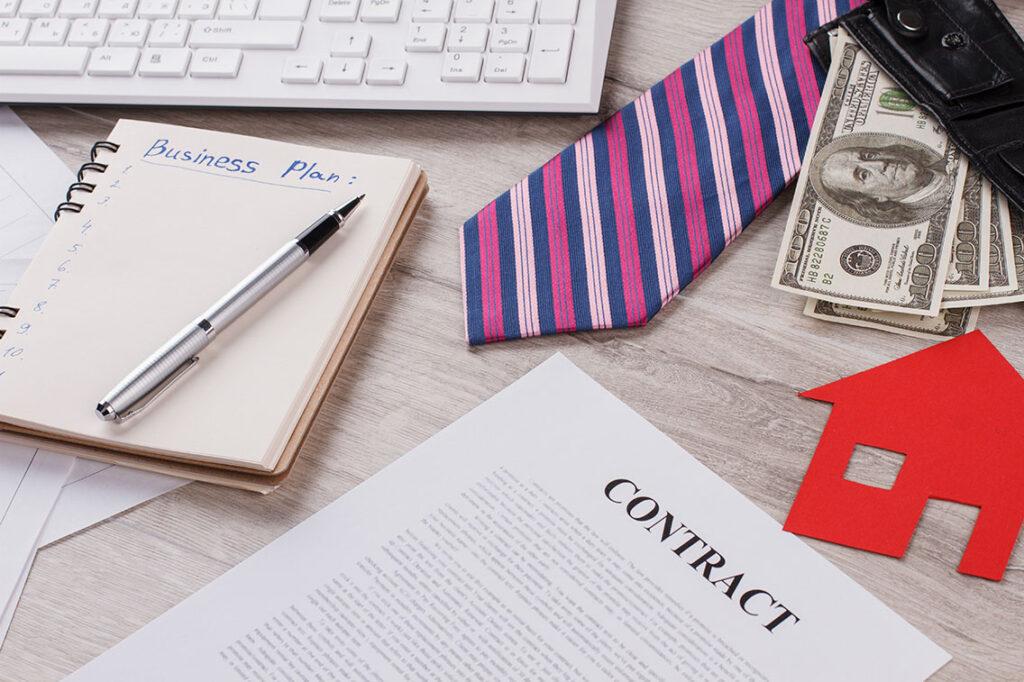The Lanham Act was signed into law by President Harry Truman in 1946. It governs trademarks and is codified in 15 U.S.C. § 1051 et seq. Section 1117 of this Act deals with a plaintiff’s recovery for a violation of their rights.
The Lanham Act is a federal United States statute, and thus it applies in federal and state courts within the United States. However, it does not apply to cases seen by the Trademark Trial and Appeal Board.
One important aspect of Section 1117 is that it addresses the statutory awarding of attorneys’ fees. This fee-shifting statute can be very important for brand owners wanting to sue for violation of their registered trademark rights, but fearful that they cannot afford reasonable attorneys’ fees and litigation expenses. Subsection (a) of the relevant Section 1117 reads as follows:
15 U.S.C. § 1117 – RECOVERY FOR VIOLATION OF RIGHTS
- Profits; damages and costs; attorney fees
- When a violation of any right of the registrant of a mark registered in the Patent and Trademark Office, a violation under section 1125(a) or (d) of this title, or a willful violation under section 1125(c) of this title, shall have been established in any civil action arising under this chapter, the plaintiff shall be entitled, subject to the provisions of sections 1111 and 1114 of this title, and subject to the principles of equity, to recover (1) defendant’s profits, (2) any damages sustained by the plaintiff, and (3) the costs of the action. The court shall assess such profits and damages or cause the same to be assessed under its direction. In assessing profits the plaintiff shall be required to prove defendant’s sales only; defendant must prove all elements of cost or deduction claimed. In assessing damages the court may enter judgment, according to the circumstances of the case, for any sum above the amount found as actual damages, not exceeding three times such amount. If the court shall find that the amount of the recovery based on profits is either inadequate or excessive the court may in its discretion enter judgment for such sum as the court shall find to be just, according to the circumstances of the case. Such sum in either of the above circumstances shall constitute compensation and not a penalty. The court in exceptional cases may award reasonable attorney fees to the prevailing party.
The relevant part of § 1117(a) for this discussion is the last phrase: “The court in exceptional cases may award reasonable attorney fees to the prevailing party.” The Supreme Court in Octane Fitness, LLC v. ICON Health & Fitness, Inc. set out a standard for what constitutes an “exceptional case.” The Court held that an “exceptional case” is one that stands out from others considering (1) the substantive strength of a party’s litigating position with respect to the law and case facts or (2) the unreasonable manner in which the case was litigated.
In simpler terms, if a party’s trademark rights were clearly infringed upon based on the relevant law or the facts of the case, a court will award the plaintiff attorneys’ fees because forcing brand owners to pay for their own litigation in every instance of clear infringement of their legal rights would be unfair and would lead to less enforcement of these rights. Additionally, if the losing party intentionally dragged out the legal process or the case could have been litigated much more efficiently, the winning party will be awarded attorneys’ fees because the extra litigation costs were not their fault.
Subsection (b) of this Section 1117 deals with the statutory right to recover attorneys’ fees in cases where the court awards treble damages:
- Treble Damages for Use of Counterfeit Mark
- In assessing damages under subsection (a) for any violation of section 1114(1)(a) of this title or section 220506 of title 36, in a case involving use of a counterfeit mark or designation (as defined in section 1116(d) of this title), the court shall, unless the court finds extenuating circumstances, enter judgment for three times such profits or damages, whichever amount is greater, together with a reasonable attorney’s fee, if the violation consists of— (1) intentionally using a mark or designation, knowing such mark or designation is a counterfeit mark (as defined in section 1116(d) of this title), in connection with the sale, offering for sale, or distribution of goods or services; or (2) providing goods or services necessary to the commission of a violation specified in paragraph (1), with the intent that the recipient of the goods or services would put the goods or services to use in committing the violation. In such a case, the court may award prejudgment interest on such amount at an annual interest rate established under section 6621(a)(2) of title 26, beginning on the date of the service of the claimant’s pleadings setting forth the claim for such entry of judgment and ending on the date such entry is made, or for such shorter time as the court considers appropriate.
While § 1117(a) covers a plaintiff that recovers actual damages and allows for a plaintiff to recover attorney fees in exceptional cases, § 1117(b) addresses instances where a court shall award treble damages.
Intentional use of a counterfeit mark by an alleged infringer can result in the plaintiff’s recovery of treble damages. This section provides a statutory right to recover attorney fees for plaintiffs who recover treble damages under § 1117(b).
However, there is a circuit split when it comes to the awarding of attorneys’ fees for plaintiffs that recover statutory damages under § 1117(c). This section reads as follows:
- Statutory Damages for Use of Counterfeit Marks
- In a case involving the use of a counterfeit mark (as defined in section 1116(d) of this title) in connection with the sale, offering for sale, or distribution of goods or services, the plaintiff may elect, at any time before final judgment is rendered by the trial court, to recover, instead of actual damages and profits under subsection (a) of this section, an award of statutory damages for any such use in connection with the sale, offering for sale, or distribution of goods or services in the amount of— (1) not less than $1,000 or more than $200,000 per counterfeit mark per type of goods or services sold, offered for sale, or distributed, as the court considers just; or (2) if the court finds that the use of the counterfeit mark was willful, not more than $2,000,000 per counterfeit mark per type of goods or services sold, offered for sale, or distributed, as the court considers just
The question is whether recovery of statutory damages under § 1117(c) precludes a plaintiff from also receiving attorneys’ fees under § 1117(a). § 1117(c) does not explicitly mention attorney’s fees. Different federal district circuit courts have handled this issue differently, with some holding that a plaintiff who recovers statutory damages is precluded from the awarding of attorneys’ fees under § 1117(a), and others holding that attorneys’ fees may still be awarded under the § 1117(a) standard of “exceptional cases” even if the plaintiff recovers statutory damages under § 1117(c).
California is in the 9th Circuit. In a 2007 9th Circuit case, K and N Engineering, Inc. v. Bulat, the court declined to address the issue of whether recovering statutory damages under § 1117(c) precludes the opportunity to recover attorneys’ fees under § 1117(a), but did expressly hold that attorneys’ fees under § 1117(b) are not recoverable in addition to statutory damages under § 1117(c). This holding left the question at issue open for interpretation for future courts in this circuit to decide on a case-by-case basis.
Federal district courts in other circuits have taken a more hard-line stance, expressly finding that attorneys’ fees under § 1117(a) may be awarded in addition to a recovery under § 1117(c).
The existence of this federal statute that allows for the awarding of attorneys’ fees is extremely valuable and beneficial to brand owners. It allows them to file suit to protect their brand even in smaller-scale scenarios, knowing that a clear-cut case of infringement can result in their attorneys’ fees being covered. Without this statute in place, many brand owners who cannot afford to litigate cases they consider to be open-and-shut would be deterred from filing such suits, making it much more difficult to protect a smaller brand. Entrepreneurs should always consult with an experienced intellectual property attorney for clarity on what the standard is for awarding statutory attorneys’ fees in their relevant jurisdictions.



